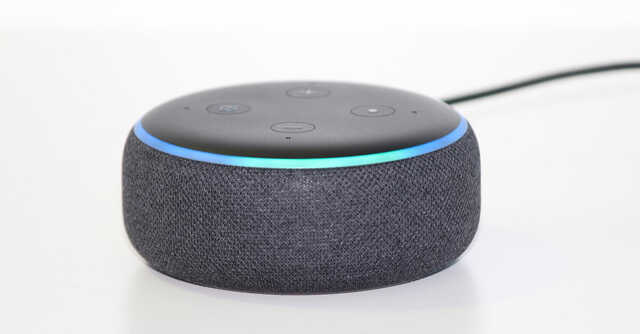
Amazon’s Alexa will now mimic the voice of your dead relatives


Amazon is working on a feature that will enable its digital assistant Alexa to speak in your dead relative’s voice. The tech major has revealed that it is working on this feature at its annual MARS (Machine Learning, Automation, Robots and Space) conference.
The purpose behind this new concept, as Amazon explained, is that it wants to “make memories last”. The technology it is developing will allow Alexa to mimic the voice of anyone it hears from less than a minute of provided audio.
Amazon Senior Vice President and Head Scientist for Alexa Rohit Prasad demoed the feature at the conference, showing a video in which, a child asks Alexa to read a bedtime story in the voice of his dead grandmother.

Prasad explained the process. “This required inventions where we had to learn to produce a high-quality voice with less than a minute of recording versus hours of recording in the studio.
“The way we made it happen is by framing the problem as a voice conversion task and not a speech generation path. We are unquestionably living in the golden era of AI, where our dreams and science fictions are becoming a reality,” he added.
While no specific details were given for the launch of the feature, the underlying technology is said to have existed for several years. But, technology companies like Microsoft said it is cautious about making digital voice-doubles which can be “easy to produce” only days before Amazon announced its plans.

In a recent blog post, Microsoft published its new AI ethics rules that would put a limit on who could create synthetic voices and how they could be used. “It is easy to imagine how it could be used to inappropriately impersonate speakers and deceive listeners,” wrote Natasha Crampton, the company’s chief responsible AI officer.
Microsoft said that it would require companies to apply for permission to make artificial voices. Last month, it began watermarking them with an inaudible signal that would allow it to identify misuse.
The concept of using AI to revive the dead or seemingly so is not a new one, even outside the realm of science fiction. In 2020, a grieving Canadian named Joshua Barbeau trained a version of the GPT-3 chatbot to converse with his late fiancee Jessica, who had died eight years earlier.

While this feature by Amazon might be helpful, for instance, when you want your kids to hear your voice through a smart speaker instead of Alexa’s, it is also a creepy idea, as some might be uncomfortable reviving a dead. There is also a chance of synthetic voices to be misused, like doubling a celebrity’s voice for example.
Nonetheless, AI voice mimicry is becoming increasingly common in recent years. These imitations are often known as “audio deepfakes” and are already regularly used in industries like podcasting, film and TV, and video games — posing a big question on the ethical aspects of AI.
